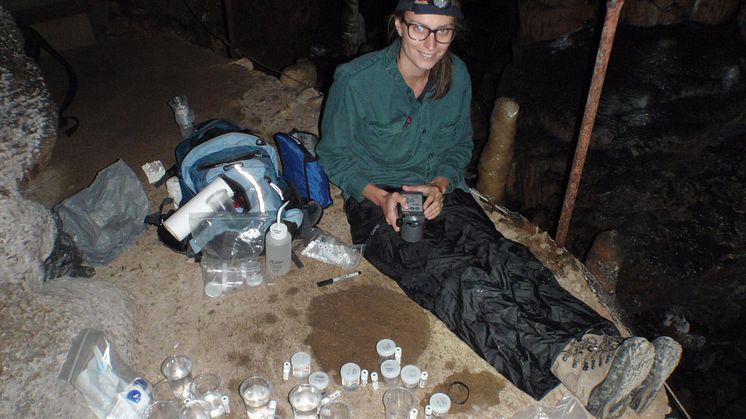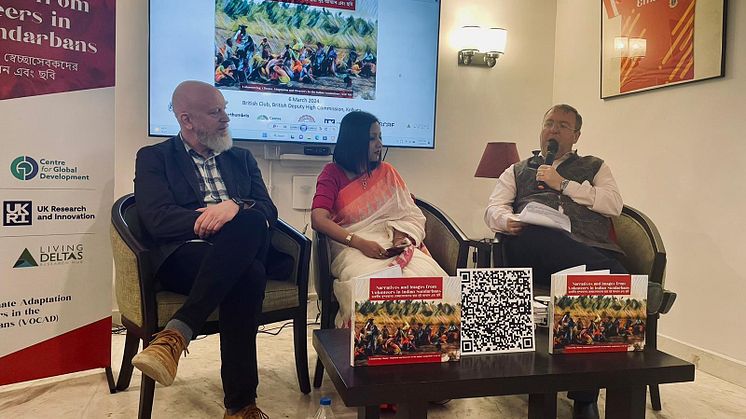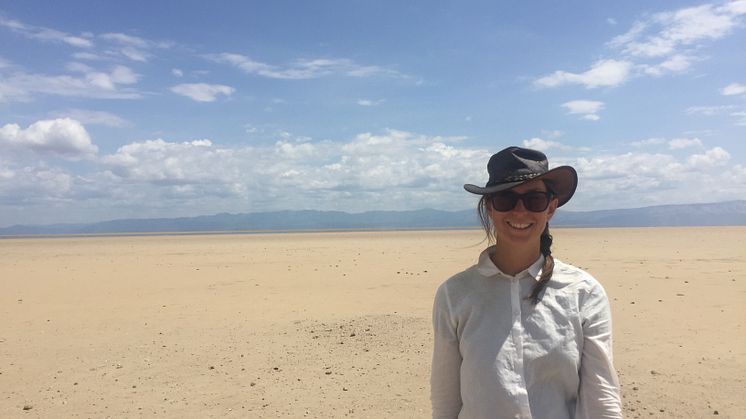
Press release -
Impact of climate change on drylands to be examined with Royal Society award
A leading researcher has been awarded a prestigious Royal Society Fellowship worth over £1.4 million to study how dryland landscapes respond to a changing climate.
Dr Monika Markowska will join Northumbria University in January 2024 as part of her Royal Society University Research Fellowship. The Royal Society is the world’s oldest independent scientific academy, bringing together many of the world’s most distinguished scientists drawn from all areas of science, engineering, and medicine.
Specialising in the variability of the Earth’s past climate, Dr Monika Markowska is an Isotope Geochemist, who is currently based at Max Planck Institute for Chemistry in Germany.
The funding for her eight-year Research Fellowship project, Unlocking the drivers of global desert expansion in warmer and colder worlds, will look at the long-standing uncertainty of how subtropical desert regions respond in globally ‘warmer worlds’.
Drylands cover almost half of the Earth’s land surfaces and are home to one in three people in the world today. Far from being unproductive regions, drylands cover a large proportion of the regions that produce grain, known as “the world’s bread basket” producing 44% of the world’s crops. However, these already water-limited regions are predicted to expand by approximately 10% by the end of this century due to global warming, with newly formed hyper-arid regions potentially displacing populations and creating climate refugees.
Dr Markowska’s research will use records of past climates stored in stalagmites recovered from caves in South Africa, Arabia and Southern Australia – known as climate proxy information - to explain what has caused dryland regions to expand and contract in the past, and therefore what we might expect for these regions in the future.
“Paleoclimate evidence suggests that conditions were wetter in areas that are now deserts today,” Dr Markowska explained.
“My research will investigate when and how dryland regions became wetter in the past, identifying the physical processes governing desertification. It will provide critical insights on dryland hydroclimate and improve our understanding of the modulation of Earth’s climate in a future warming world.”
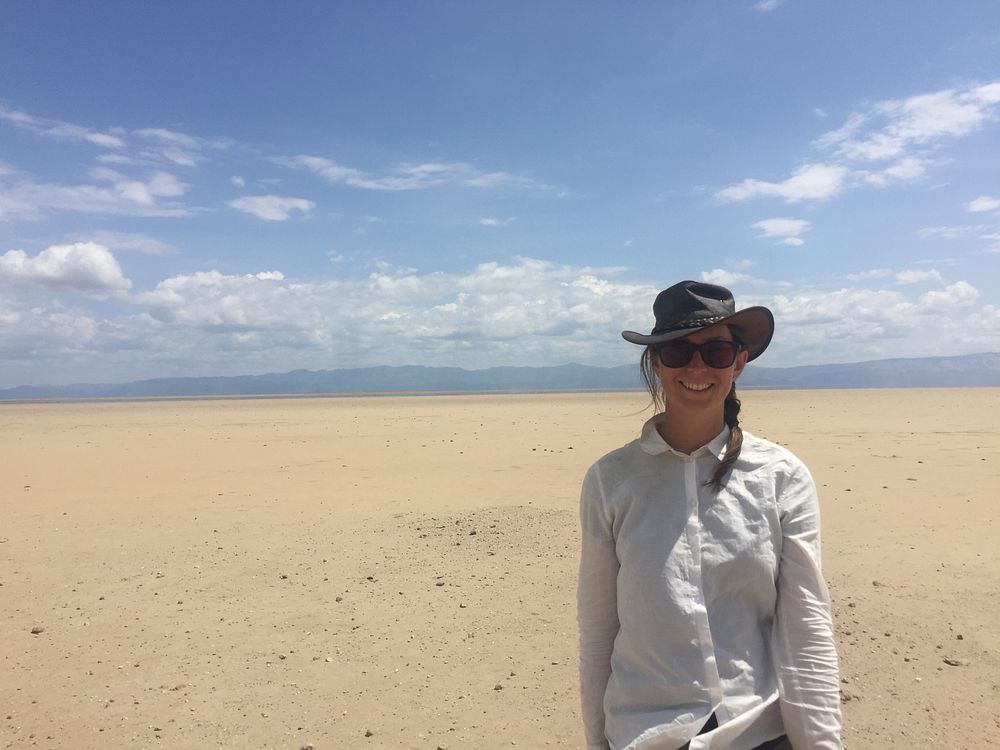
Dr Markowska will work in collaboration with an international and interdisciplinary team of scientists in Australia, Germany, United States and South Africa, as well as paleoclimate model researchers at the universities of Leeds and Reading.
Commenting on the award, Dr Markowska said: “I am delighted to be awarded a Royal Society University Research Fellowship to conduct my research at Northumbria University. This fellowship will afford me the opportunity to build my own research group which will focus on improving our understanding of the drivers of hydroclimate change in vulnerable dryland regions globally.”
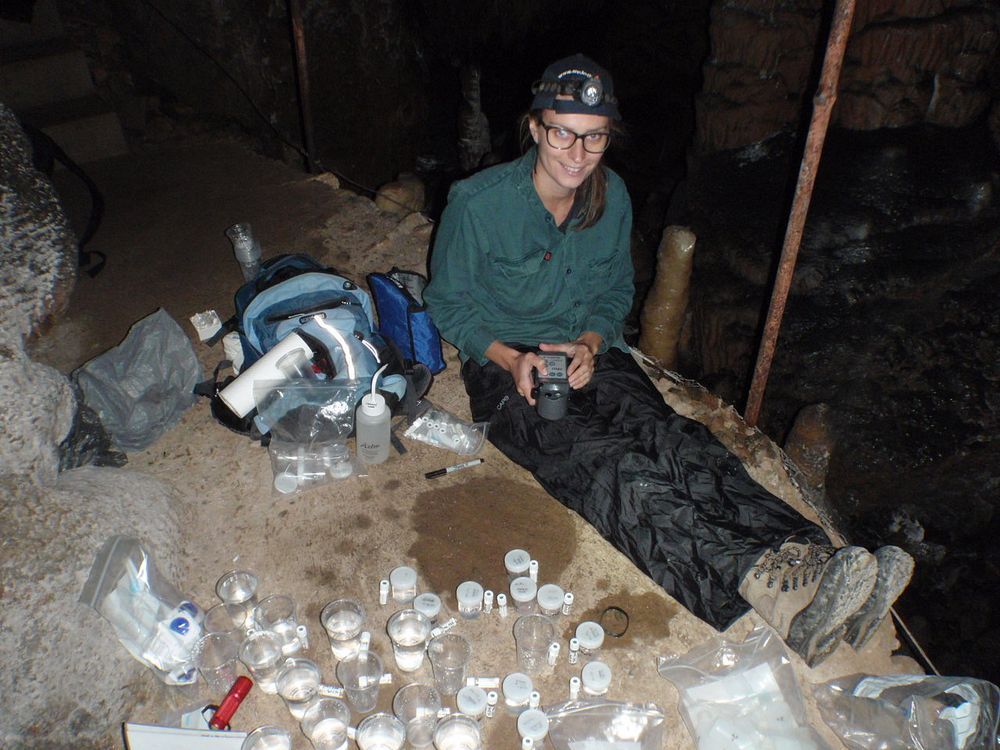
In joining the Department of Geography and Environmental Sciences, Dr Markowska will be working alongside a world-leading group of researchers using climate records preserved in caves to solve problems with forecasting change in various aspects of the Earth’s systems.
Professor John Woodward, Pro Vice-Chancellor for the Faculty of Engineering and Environment at Northumbria, said: “Recent extreme weather and related flooding in North Africa shows us the importance of understanding the consequences of climate change in dryland regions. We are delighted to welcome Dr Markowska to Northumbria and are grateful for the support of the Royal Society in funding this exciting and important project.”
The Royal Society established its University Research Fellowship scheme to identify outstanding early career scientists who have the potential to become leaders in their chosen fields, providing them with the opportunity to build an independent research career.
Sir Adrian Smith, President of The Royal Society, said: "The importance of long-term funding for scientists at the early stages of their research careers cannot be understated. These scientists are fundamental to the future of research and innovation in the UK, and it is essential that we give them the support and stability they need to allow them to pursue novel and groundbreaking research. Through its globally competitive grant schemes, The Royal Society aims to ensure we attract the brightest scientists from across the world.”
The Department of Geography and Environmental Sciences encompasses research in areas such as cold and paleo environments, climate and conservation, and social and cultural geographies. Discover more about research in the department.
Topics
UNIVERSITY OF THE YEAR 2022 (Times Higher Education Awards)
Northumbria is a research-intensive university that unlocks potential for all, changing lives regionally, nationally and internationally. Find out more about us at www.northumbria.ac.uk
--- Please contact media.communications@northumbria.ac.uk with any media enquiries or interview requests ---








